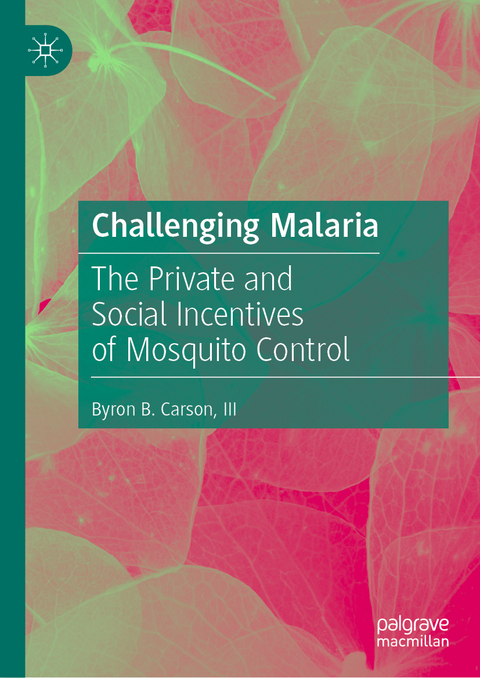
Challenging Malaria
Springer International Publishing (Verlag)
978-3-031-39509-3 (ISBN)
Five years after Ronald Ross discovered the link between malaria and mosquitos, American entomologist Leland Howard wrote of the "mosquito evil" that occurs when "everybody's business is nobody's business." Howard's insight was largely ignored, but it captures what social scientists now refer to as the problem of collective action.
When this problem persists in the context of malaria, individuals under-provide prevention and suffer from a higher prevalence of malaria. Imagine a group of people trying to drain a pond where mosquitoes breed. Everyone in the group faces an incentive to free ride, which can hinder their drainage efforts. Thus, when people fail to resolve issues related to collective action, they submit to the "mosquito evil" and, potentially, to malaria.
This book explores Howard's logic, the economics of collective action, and the history, epidemiology, and public health of malaria to analyze the conditions under which peopleprivately resolve collective action problems associated with mosquito abatement and malaria prevention. Generally, people are more likely to resolve these problems when the benefits of abatement and prevention outweigh the costs. This logic is developed into a framework and applied to historical and modern-day issues related to malaria, including the lack or abundance of private prevention in the United States and in developing areas; malaria's resurgence in countries like China, Venezuela, and Bangladesh; and the difficulties of large-scale insecticide-treated bed net campaigns. Given this framework, we should develop a greater appreciation for entrepreneurial responses, civil society, market processes, and private forms of collective action.
lt;p>Byron B. Carson, III is an Associate Professor of Economics and Business at Hampden-Sydney College in Hampden-Sydney, Virginia (USA). He teaches courses on introductory economics, money and banking, development economics, health economics, and urban economics. He earned a Ph.D. in Economics from George Mason University and a B.A. in Economics from Rhodes College. His research interests include economic epidemiology, public choice, and Austrian economics.
Introduction.- Part 1: The Economic Approach to Malaria Prevention.- 1. Malaria Takes a Toll.- 2. Advancing Howard's Insight.- Part 2: The Collective Action Problem of Malaria.- 3. The Burden of Collective Action.- 4. Incentives Can Help.- 5. Tying and Associations Help Too.- 6. Don't Forget Firms in the Private Sector.- Part 3: Extending Private and Collective Prevention.- 7. Collective Action Can Fail.- 8. Residential Markets May be Thin.- 9. Resurgence in India, Venezuela, Nigeria.- Part 4: Revising Malaria Prevention.- 10. What of bed nets and indoor residual spraying?.- 11. A Market-based, Voluntary Approach to Malaria Prevention.
| Erscheinungsdatum | 29.09.2023 |
|---|---|
| Zusatzinfo | XVII, 240 p. 24 illus., 2 illus. in color. |
| Verlagsort | Cham |
| Sprache | englisch |
| Maße | 148 x 210 mm |
| Gewicht | 438 g |
| Themenwelt | Studium ► Querschnittsbereiche ► Epidemiologie / Med. Biometrie |
| Sozialwissenschaften ► Politik / Verwaltung | |
| Wirtschaft ► Volkswirtschaftslehre ► Wirtschaftspolitik | |
| Schlagworte | associations • Collective Action • Entrepreneurship • Firm-led abatement • Malaria prevention • Malaria Transmission • Mosquito abatement • Private Goods |
| ISBN-10 | 3-031-39509-3 / 3031395093 |
| ISBN-13 | 978-3-031-39509-3 / 9783031395093 |
| Zustand | Neuware |
| Haben Sie eine Frage zum Produkt? |
aus dem Bereich


